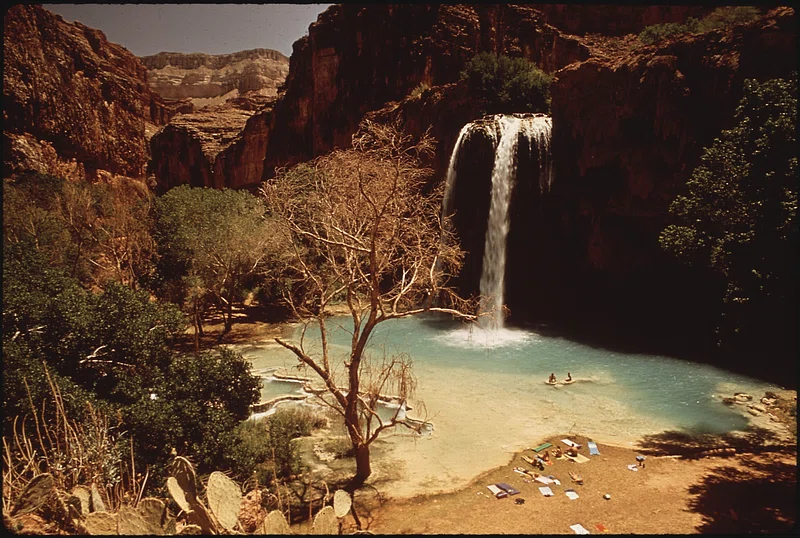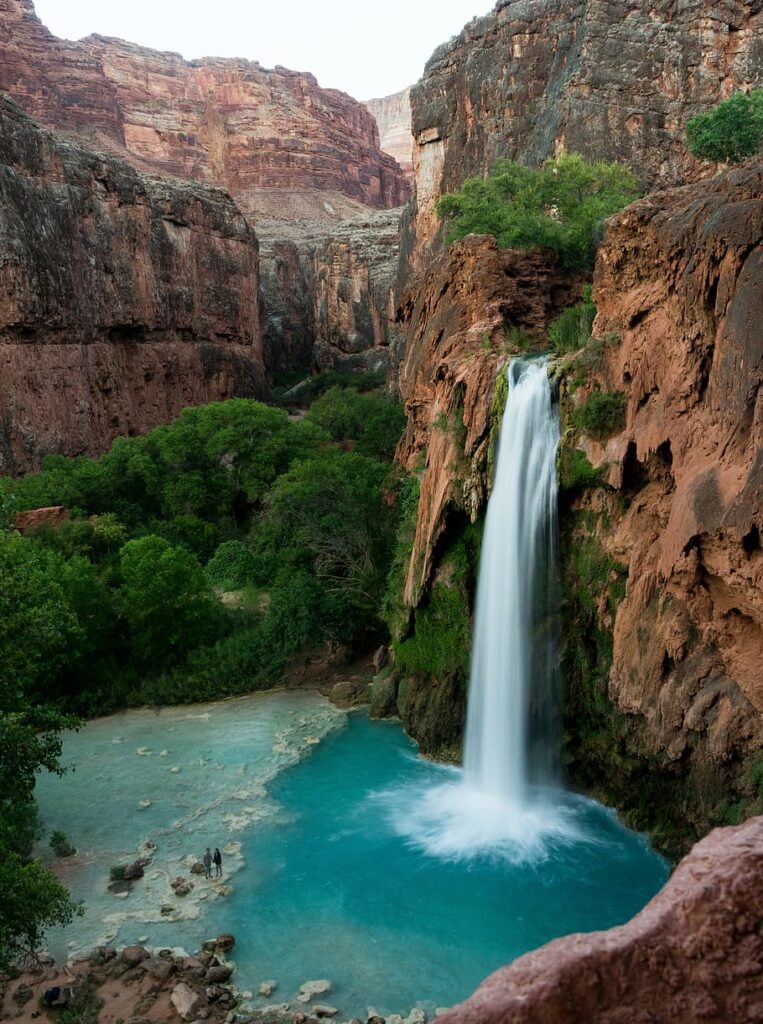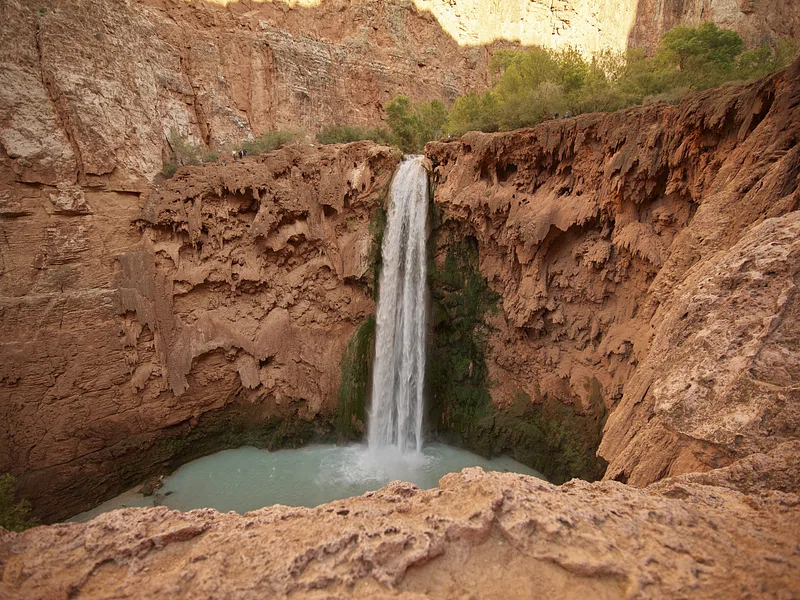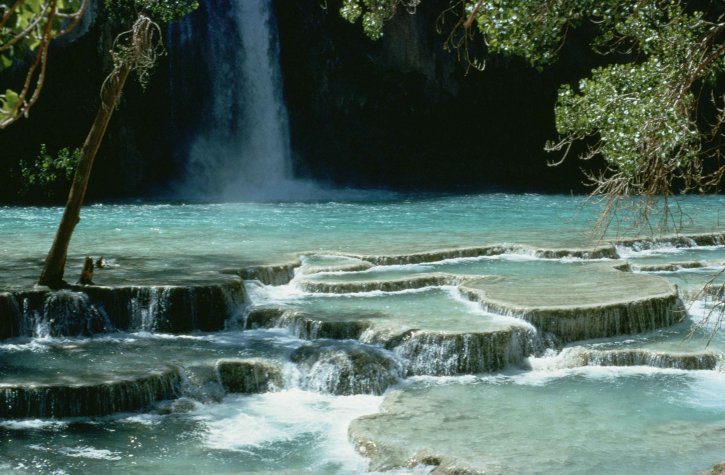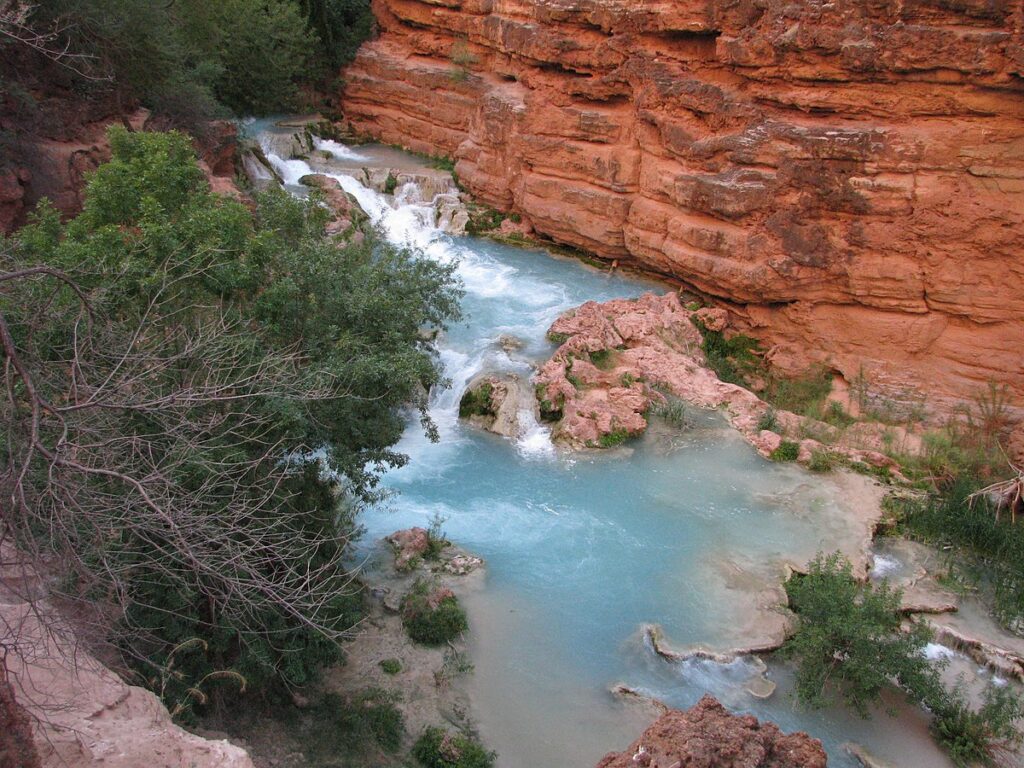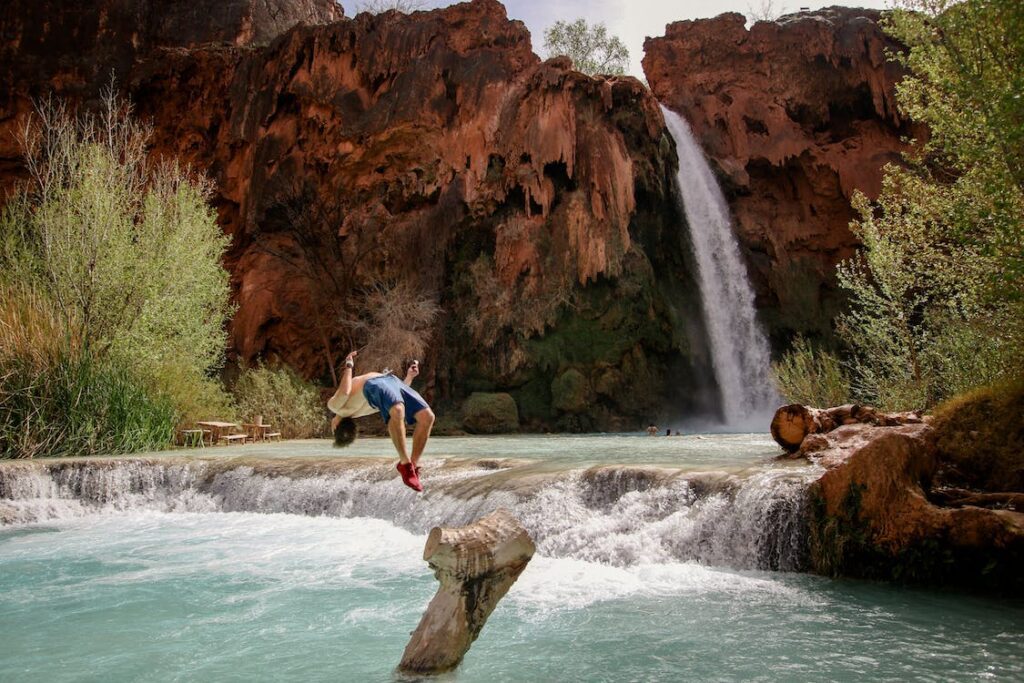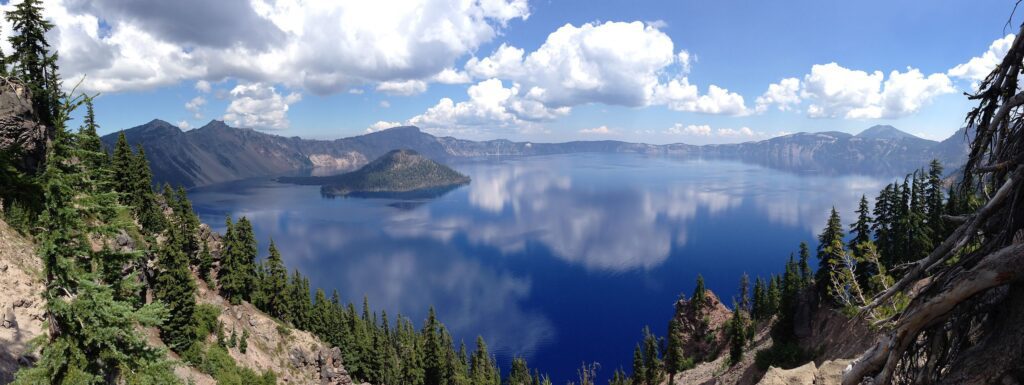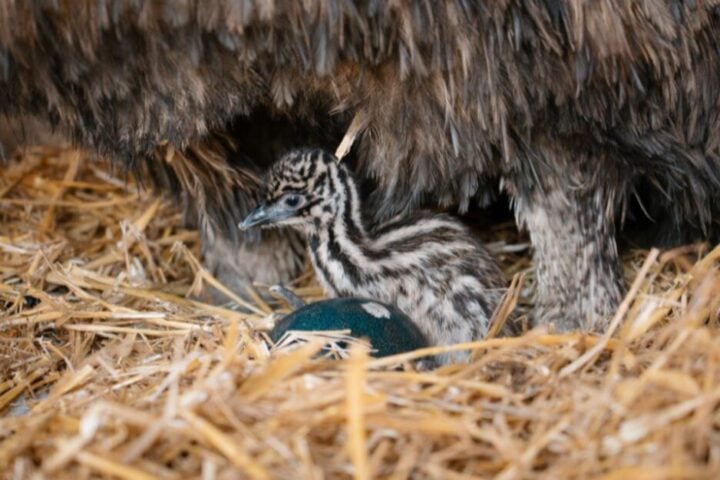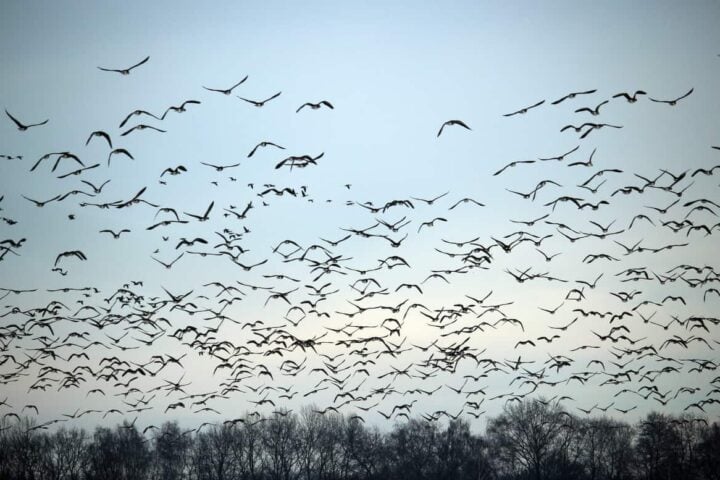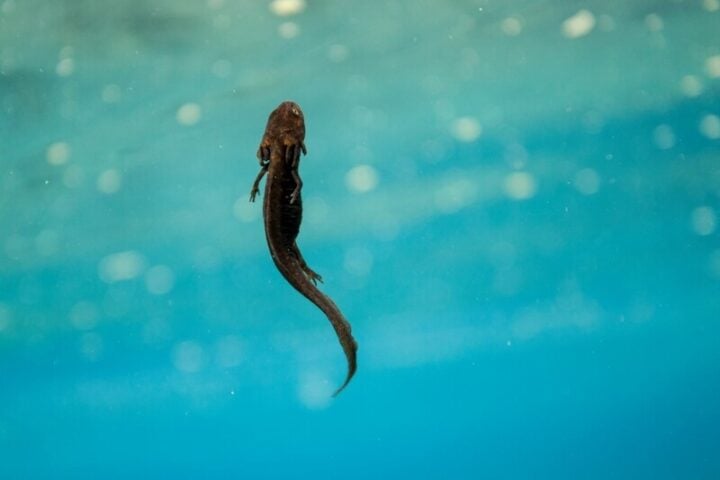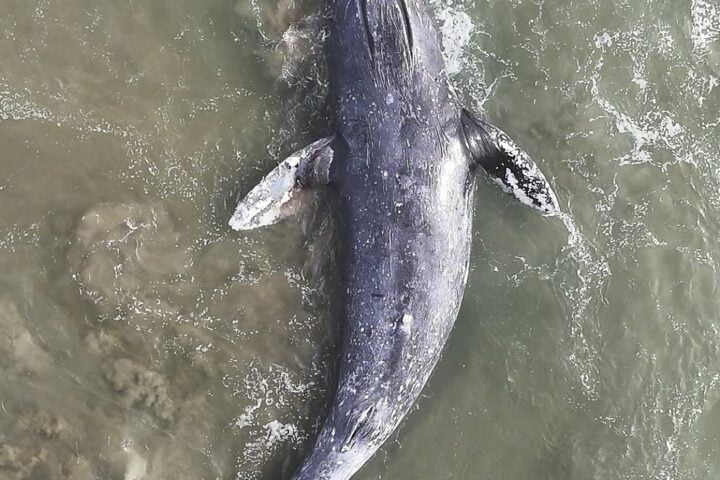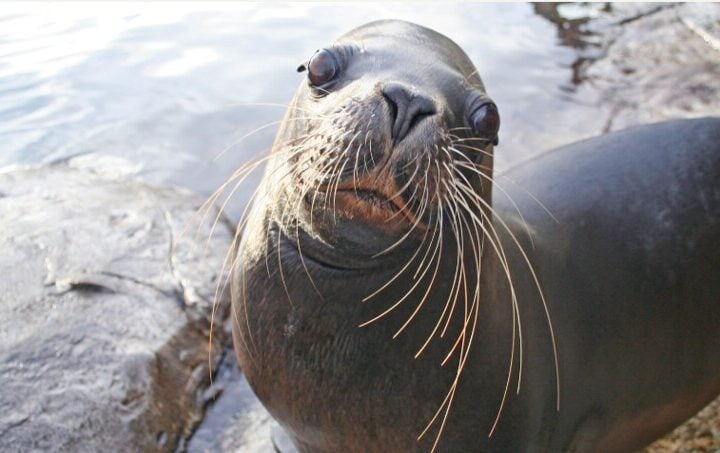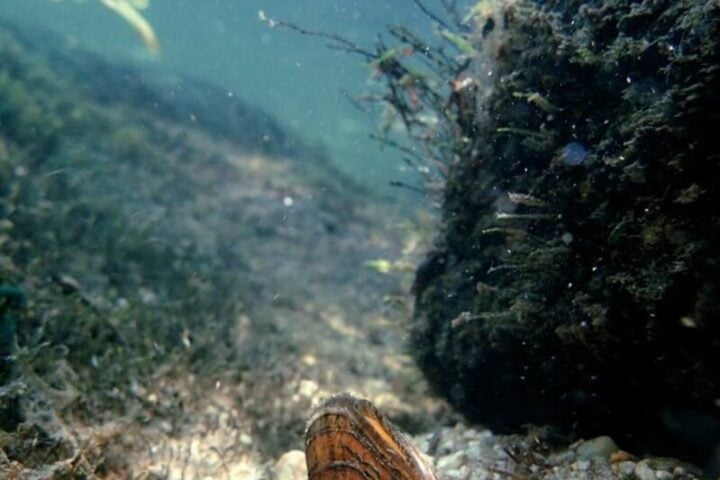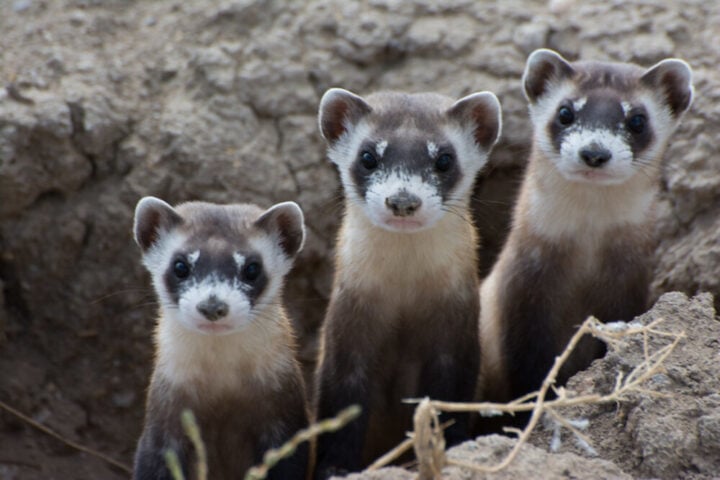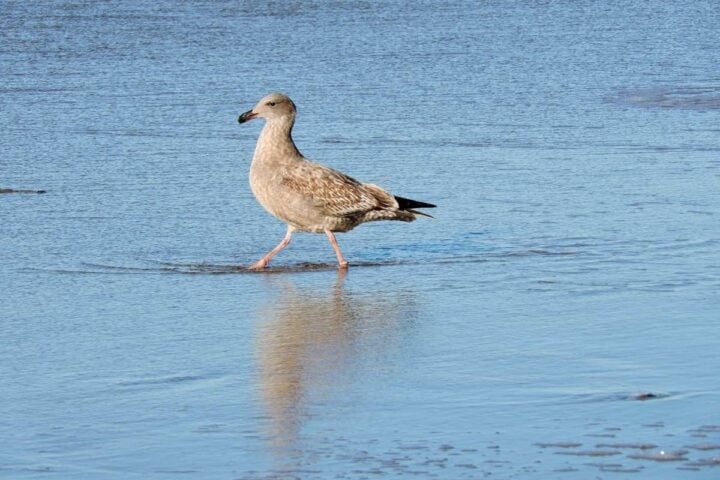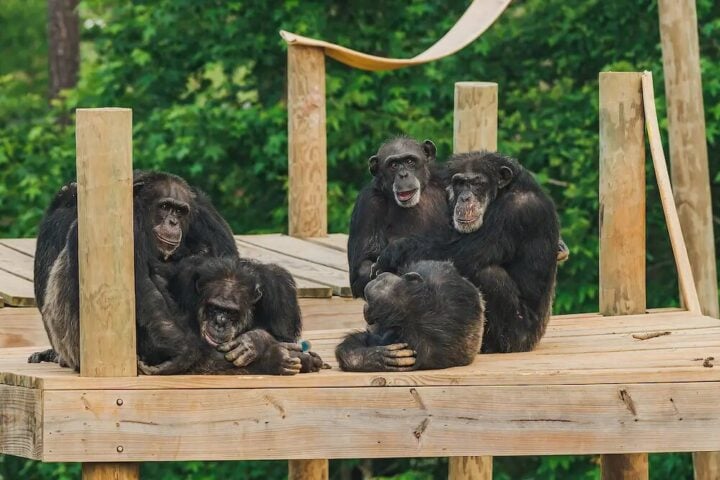Tucked in the rugged embrace of the Grand Canyon, Havasupai tribal lands captivate visitors with their enchanting turquoise waters and dramatic waterfalls. Amid the shifting hues of red cliffs, one can uncover a mesmerizing spectacle of nature’s raw power and captivating serenity.
Journeying into Havasupai’s Enigmatic Heart
Adventure awaits those undaunted by the Havasupai challenge. The gateway to the paradise that is Havasupai is the Hualapai Hilltop, the beginning of a grueling 10-mile trek. With every step echoing against the canyon walls, adventurers are rewarded with an ever-changing tapestry of ethereal beauty.
Unveiling the Havasupai’s Water Wonders
The crown jewels of the Havasupai landscape are its iconic waterfalls. As the emerald creek weaves its way through the red earth, it descends into breathtaking falls, creating a harmonious blend of tranquility and raw natural power.
Havasu Falls, the tribe’s namesake, plunges a stunning 100 feet into a wide, inviting pool. Its turquoise waters contrast vividly against the desert landscape, offering the perfect spot for a refreshing swim. Mooney and Beaver Falls, each with its unique beauty, are perfect for thrill-seekers looking for a challenging climb.
Havasupai’s Natural Travertine Majesty
When one encounters the bewitching allure of Havasupai’s waterfalls, it’s impossible to overlook the extraordinary natural architecture that bestows them their distinct appearance. This architectural phenomenon is attributed to travertine, a type of limestone deposited by mineral springs. As the Havasu Creek meanders its way through the arid landscapes of Arizona, it carries with it an abundance of dissolved calcium carbonate, which precipitates and settles along the creek bed, giving birth to the striking travertine formations that transform the waterfalls and pools into an almost otherworldly spectacle.
These intricate, self-evolving travertine formations enhance the charm of Havasupai’s azure falls and make them a unique geological marvel. As the calcium-laden water of Havasu Creek cascades down, it carves elegant, ever-changing sculptures out of the rock, which glisten in the sunlight and contrast dramatically against the rusty hues of the canyon walls. The cascade and its constant deposit of travertine have created an array of richly textured, terraced pools with a mesmerizing blend of colors – a testament to nature’s capacity to produce works of art. This dynamic interplay between water and rock at Havasupai has been ongoing for millennia, yielding a captivating landscape that marries the artistry of nature with the inexorable passage of geological time.
Experiencing Havasupai’s Unique Natural Biodiversity
Beyond the mesmerizing waterfalls, Havasupai hosts a unique ecosystem. With an array of species adapted to the extreme desert environment, the landscape is alive with biodiversity. From the elusive bighorn sheep, bobcats, and foxes to the array of birds that call the canyon home, Havasupai is an ecological treasure trove waiting to be explored.
Similar Post
Engaging in Havasupai’s Enthralling Activities
The activities offered in Havasupai are as varied as the landscape itself. Hiking is undoubtedly at the forefront, with numerous trails winding through the canyon, each offering distinct vistas. The trail to Havasu Falls is an absolute must, leading visitors through a dramatic landscape to the tribe’s namesake waterfall. However, the less-frequented path to Mooney and Beaver Falls provides an equally impressive journey. It can be quite challenging, involving ladders and ropes to traverse the steep terrain, but the result is a secluded, tranquil paradise few get to experience.
More than just a hiker’s haven, Havasupai’s unique geography allows for other exhilarating activities. Swimming and cliff jumping in the crystal-clear pools beneath the waterfalls are popular ways to cool off after a long hike. The turquoise waters of Havasu Creek are not only refreshing but provide a surreal backdrop for underwater photography. Additionally, bird watchers and wildlife enthusiasts will enjoy spotting the canyon’s native species. The arid scrubland and canyon cliffs are home to creatures such as the coyote, fox, and bighorn sheep, as well as a myriad of bird species. In Havasupai, nature’s playground is at your disposal.
Responsible Adventure in Havasupai
While Havasupai tempts visitors with its beauty, the tribal lands are sacred and steeped in centuries-old customs. As such, visitors must approach the journey with respect and adhere to ethical travel practices. The permit system in place is part of the Havasupai tribe’s efforts to manage the delicate balance between preserving their land and accommodating visitors.
The tribe has adopted strict rules prohibiting off-trail hiking and camping, and visitors are expected to pack out all trash to maintain the land’s cleanliness and sanctity.
The Havasupai Adventure: A Commitment Beyond Finances
Venturing into Havasupai is not a simple excursion but rather a significant commitment. The financial burden is one aspect, with permit costs varying between $395 to $500 per person for 2023, with potential increases for weekend and holiday visits. Beyond this, the journey demands a high degree of physical fitness and preparedness.
Climate Consciousness: Timing your Havasupai Visit
Given the harsh desert climate, the timing of the Havasupai expedition can significantly impact the experience. While the peak seasons from May to September offer ideal conditions, the scorching Arizona heat can be punishing. The milder weather during the spring and fall months can make the journey more manageable and pleasant.
Exploring Alternative Transportation in Havasupai
For those less inclined or unable to undertake the challenging hike, the Havasupai tribe offers mule and helicopter services. These alternatives require advance planning and come with additional costs but can make the adventure more accessible to a broader audience.
Embracing Sustainable Tourism in Havasupai
The soaring popularity of Havasupai underscores the pressing global issue of sustainable tourism. It is crucial to preserve these locations’ ecological integrity and cultural heritage.
To support the Havasupai tribe’s efforts to safeguard their ancestral lands, visitors must respect the tribe’s rules and uphold ethical travel practices. This includes keeping to designated trails, not disturbing wildlife, and leaving no trace.
The Havasupai Experience: A Reminder of our Collective Responsibility
The allure of Havasupai extends beyond its natural wonders—it is an emblem of the extraordinary cultural and ecological diversity our planet hosts. As we traverse these landscapes, it’s our collective responsibility to uphold the principles of responsible tourism. Our actions can contribute to preserving these irreplaceable spaces for future generations to appreciate and explore.

